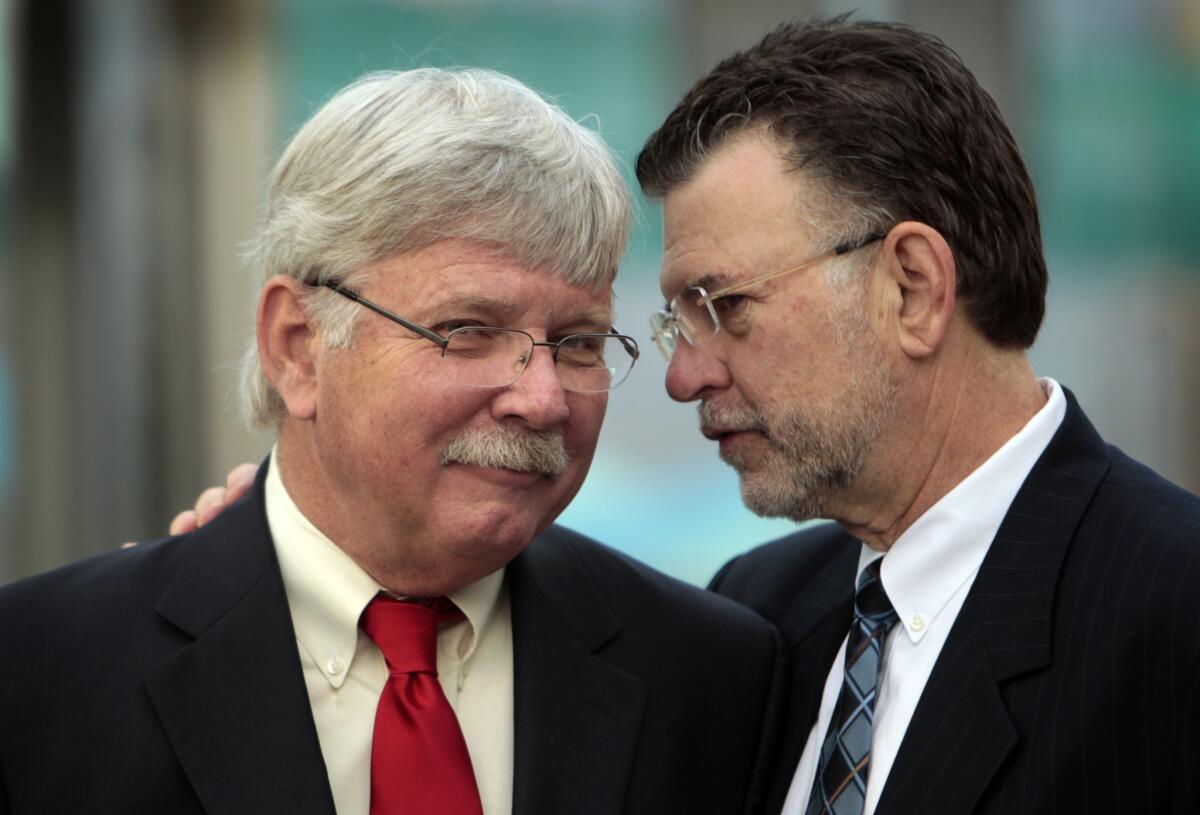Los Angeles County’s top transit executive to step down in April

- Share via
The chief executive of the Los Angeles County Metropolitan Transportation Authority said Tuesday that he would step down in April after six years of overseeing both high-profile failures and major milestones during the most ambitious rail expansion agenda in the agency’s history.
Leahy’s performance as chief executive has been under confidential review by the Metro board of directors for more than six months, and a majority of board members were ready to let his contract expire in April, according to sources familiar with the negotiations. But in an interview with The Times, Leahy, 65, said leaving Metro was his choice.
Leahy oversaw the ribbon-cuttings for the first projects funded by Measure R, the half-cent sales tax increase that county voters approved in 2008.
The $35 billion that tax will raise sparked a $14-billion slate of construction projects, the largest in Metro’s history and the biggest of any local transit agency in the United States. Metro currently has five rail lines in various stages of construction that stretch from Santa Monica to Azusa. When open, the new lines will more than double the length of the network.
“We’ve achieved a lot in a period of frugality,” Leahy told The Times. “I’m very happy about that.”
But Leahy also drew sharp criticism for the years-long 405 Freeway widening project, which required hundreds of millions more dollars and an extra year to complete.
In a letter submitted to Metro board chairman and Los Angeles Mayor Eric Garcetti and obtained by The Times, Leahy said it was “a distinct privilege” to serve as chief executive.
In a statement, Garcetti said “millions of people will get to work and home to their loved ones faster because of his stewardship” and applauded Leahy’s ability to bring federal funding to Los Angeles.
“On his watch Metro buses are more accessible, more punctual, and cleaner,” Garcetti said. “Art Leahy’s impact on Southern California will be felt forever more.”
Leahy grew up in Highland Park and began his transit career as a bus driver for the Southern California Rapid Transit District in 1971.
“Los Angeles County owes a debt of gratitude to Art Leahy,” said Gary Toebben, president and chief executive of the Los Angeles Area Chamber of Commerce, in a prepared statement. “He was exactly the right person to lead the cavalry charge after voters passed Measure R in 2008.”
Follow @laura_nelson for more transportation news.
More to Read
Sign up for Essential California
The most important California stories and recommendations in your inbox every morning.
You may occasionally receive promotional content from the Los Angeles Times.














